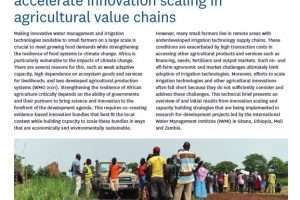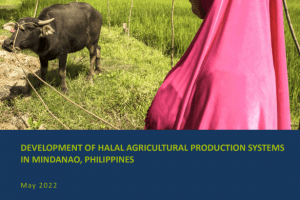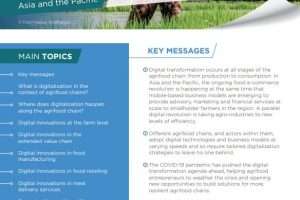Despite the widespread belief that marketing cooperatives’ benefits may extend beyond participating farmers, little is known about the cooperative’s effect on nonparticipating farmers. This paper exploits exogenous variation in language spoken at home in Thailand to obtain instrumental variable estimates of the spillover effect of marketing cooperatives. We hypothesize that farmers who sell rice to private intermediaries in the area where there is direct competition between marketing cooperatives and private intermediaries (treated areas) are likely to receive a higher price than those who sell rice in other areas. Using household-level data of rice farmers in Thailand in the marketing year 2018/19, we find strong evidence that farmers in treated areas receive 10.9% higher prices from private intermediaries than those in comparison areas. Our results provide crucial implications for food policy debates regarding the role of marketing cooperatives in agri-food value chains. In particular, evaluating the inclusiveness of marketing cooperatives toward poor farmers should not be limited to sampling and analyzing its members only. Failure to consider the spillover effect could lead to substantial underestimation of the impact of marketing cooperatives on societal welfare.
The spillover effect of direct competition between marketing cooperatives and private intermediaries: Evidence from the Thai rice value chain





Add Comment